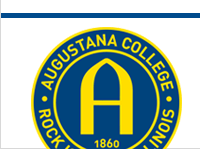Course
CSD-490 Senior Inquiry-Thesis
Document Type
Student Paper
Publication Date
Spring 2016
Disciplines
Communication Sciences and Disorders
Description, Abstract, or Artist's Statement
Currently, there are no clear clinical guidelines for determining the method that will elicit the best discourse sample from individuals with expressive aphasia. Additionally, there is no universal method used to evaluate discourse samples. Archival data was collected from a 42-year old male who experienced a cerebrovascular accident 15 years ago and was then diagnosed with expressive aphasia. Two consecutive 8-week courses of treatment periods were analyzed to determine the best discourse elicitation and evaluation method. A comparison of descriptive and procedural discourse elicitation techniques revealed that procedural discourse results in a higher average percent Correct Information Units (%CIUs), words per minute (WPM), and Type-Token Ratio (TTR). Additionally, the results suggested that evaluating discourse using a combined analysis approach, both microlinguistic and macrolinguistic analyses, revealed more clinically relevant information. Though this study does need to be replicated with a larger population, this analysis may lead to more informed discussions when selecting a discourse elicitation and evaluation technique for treatment.
Augustana Digital Commons Citation
Vitale, Kailey E.. "The Elicitation of Descriptive and Procedural Discourse in Expressive Aphasia" (2016). Communication Sciences and Disorders: Student Scholarship & Creative Works.
https://digitalcommons.augustana.edu/csdstudent/1
